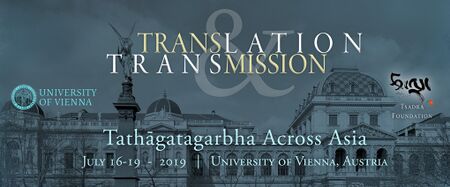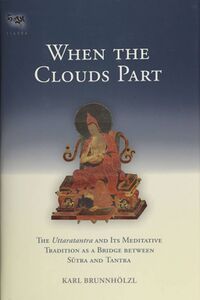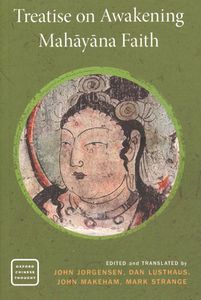Explore: Difference between revisions
((by SublimeText.Mediawiker)) |
((by SublimeText.Mediawiker)) |
||
| Line 291: | Line 291: | ||
</div> | </div> | ||
</div> | </div> | ||
<div class="row phuntso-gradient m-0"> | |||
<div class="row | |||
<div class="col-12 p-0"> | <div class="col-12 p-0"> | ||
{{FeaturedItem | {{FeaturedItem | ||
|page=People/Phuntsho,_Karma | |page=People/Phuntsho,_Karma | ||
|title=Karma Phuntsho | |title=Writer-in-digital-residence: Karma Phuntsho | ||
|description=<p>Lopen (Dr) Karma Phuntsho is one of Bhutan’s leading intellectuals. He has finished monastic training in Bhutan and India before he pursued a M.St in Classical Indian Religions, and D.Phil in Oriental Studies at Balliol College, Oxford. He was a researcher at CNRS, Paris, a Research Associate at Department of Social Anthropology and the Spalding Fellow for Comparative Religion at Clare Hall, Cambridge University, and Research Consultant at University of Virginia.</p> | |description=<p>Lopen (Dr) Karma Phuntsho is one of Bhutan’s leading intellectuals. He has finished monastic training in Bhutan and India before he pursued a M.St in Classical Indian Religions, and D.Phil in Oriental Studies at Balliol College, Oxford. He was a researcher at CNRS, Paris, a Research Associate at Department of Social Anthropology and the Spalding Fellow for Comparative Religion at Clare Hall, Cambridge University, and Research Consultant at University of Virginia.</p> | ||
Revision as of 13:37, 11 August 2020

See all presentations
Klaus-Dieter Mathes
Ngawang Jorden
Jacqueline Stone
Lopen (Dr) Karma Phuntsho is one of Bhutan’s leading intellectuals. He has finished monastic training in Bhutan and India before he pursued a M.St in Classical Indian Religions, and D.Phil in Oriental Studies at Balliol College, Oxford. He was a researcher at CNRS, Paris, a Research Associate at Department of Social Anthropology and the Spalding Fellow for Comparative Religion at Clare Hall, Cambridge University, and Research Consultant at University of Virginia.
An author of over hundred books and articles including the authoritative History of Bhutan and Mipham’s Dialectics and the Debates on Emptiness, he speaks and writes extensively on Bhutan and Buddhism. His work has received extensive media coverage including by BBC, BBS, Kuensel, The Bhutanese, Science, Radio Free Asia, Oxford Today, Times of India, India Today and Channel News Asia. He is also the President and the founder of Loden Foundation, a leading educational, entrepreneurial and cultural initiative in Bhutan. He is currently based in Thimphu, Bhutan. Read a complete bio on Wikipedia.
Tsadra Foundation is excited to support the translation of one of the most important commentaries in the Tibetan tradition. Having already created a critical edition of the text and published widely on buddha-nature topics, Klaus-Dieter Mathes and two of his graduate students will work on Gö Lotsāwa Zhönu Pal's (1392–1481) extensive commentary on the Gyü Lama starting in 2021. In this special text we find not only a complete 15th-century Tibetan version of the Gyü Lama (including Asaṅga's commentary), but also a critical philological review of the earlier Tibetan canonical translation by Ngok Lotsāwa Loden Sherab (1059–1109) against the background of the original Sanskrit about which Gö Lotsāwa was exceptionally knowledgeable. Gö Lotsāwa's study, rife with quotations from a great variety of texts from both the Kangyur and Tengyur, thus offers representative samples from all strands of Indian Buddhist literature. Gö Lotsāwa's Gyü Lama commentary is not only the first available commentary belonging to the meditation tradition (Tib. sgom lugs) of the Maitreya works, but also includes a tradition of teaching Mahāmudrā based on the sūtras and the works of Maitreya.
Ringu Tulku
Tokpa Tulku
I.28
རྫོགས་སངས་སྐུ་ནི་འཕྲོ་ཕྱིར་དང་། །
དེ་བཞིན་ཉིད་དབྱེར་མེད་ཕྱིར་དང་། །
རིགས་ཡོད་ཕྱིར་ན་ལུས་ཅན་ཀུན། །
རྟག་ཏུ་སངས་རྒྱས་སྙིང་པོ་ཅན། །
Since suchness is undifferentiable,
And because of the disposition,
All beings always possess the buddha heart.
संबुद्धकायस्फरणात् तथताव्यतिभेदतः
गोत्रतश्च सदा सर्वे बुद्धगर्भाः शरीरिणः
佛法身遍滿 真如無差別
皆實有佛性 是故說常有
Click to view all verses





